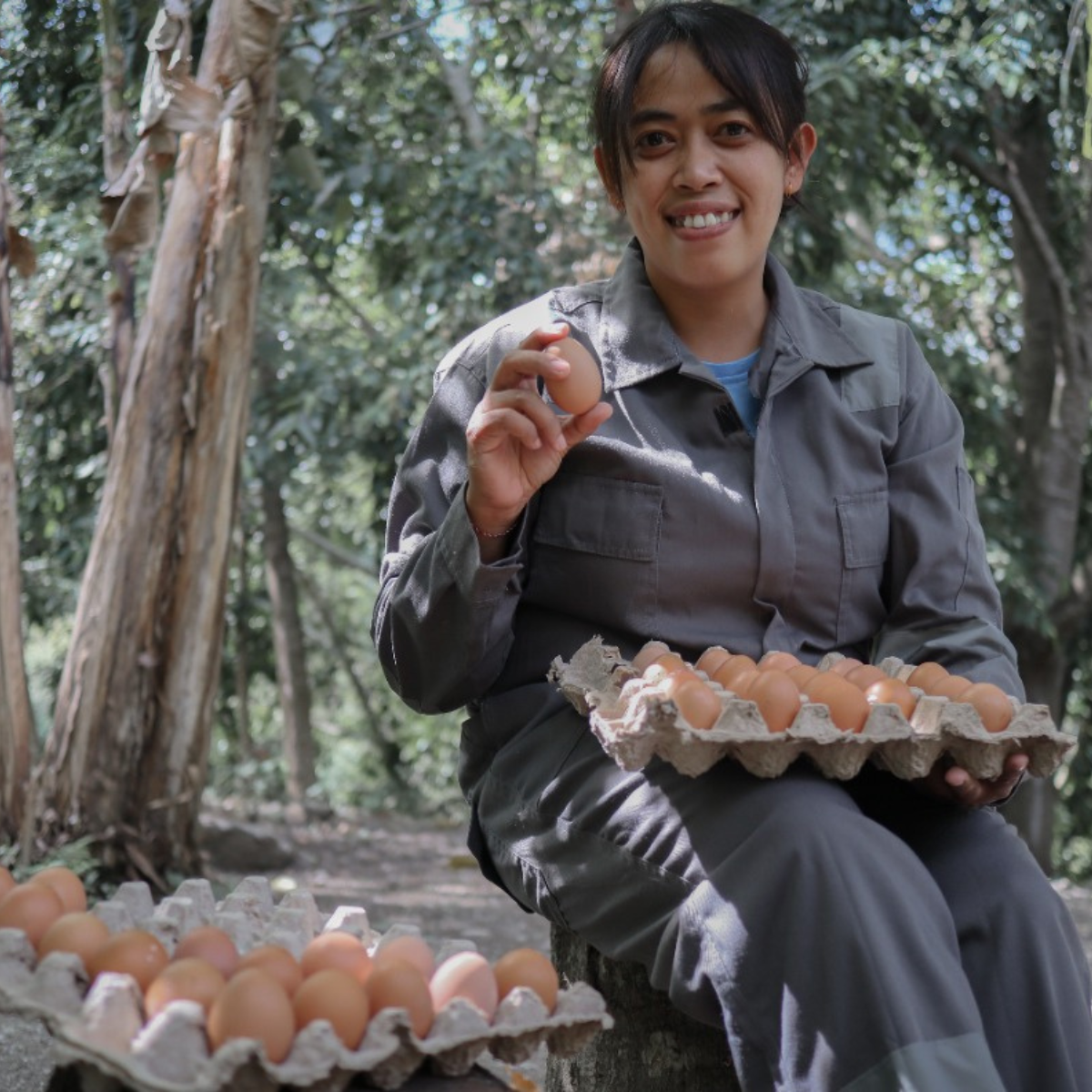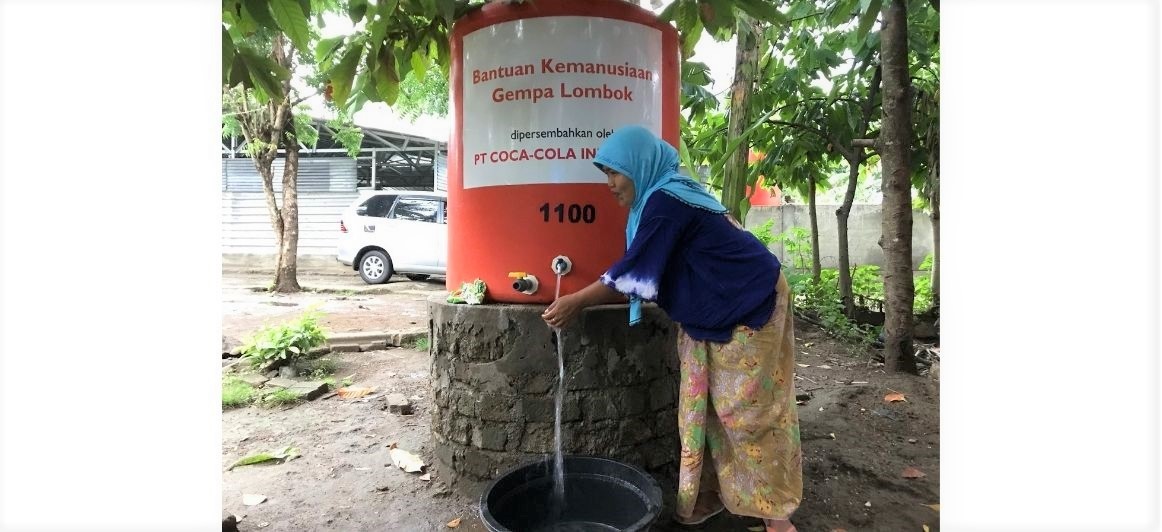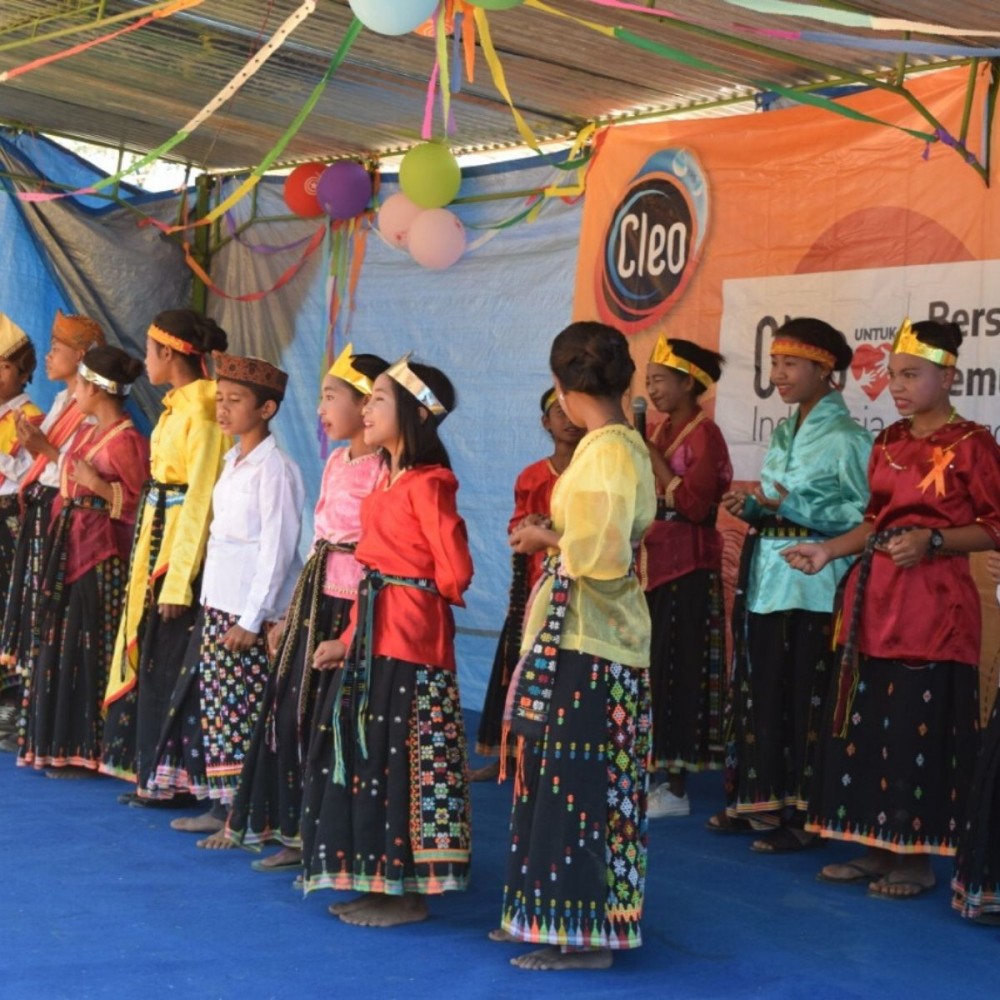Fresh Eggs: Business of The People in Central Sulawesi!

"Slowly but surely, this laying business is starting to grow," said Ivon (26), a member of a group of laying hen farmers in Sigi Regency. "The sale of chicken eggs can certainly increase the income of housewives in the village," she added.
The Covid-19 pandemic not only limits human social activities but also slows down the pace of the national economy. Weak economic communities have been hit the hardest. Based on the results of a vulnerability assessment conducted by Wahana Visi Indonesia in 2021, 29% of respondents from Central Sulawesi stated that they were affected by the Covid-19 pandemic. People experienced a decrease in income or job loss. Most respondents indicated that they experienced a reduction in income between 25-50%. As a result, they had to reduce the quantity and quality of food as a coping mechanism.
The village economy and family finances need to recover from this situation. Wahana Visi Indonesia, in partnership with the Zurich Foundation, has contributed to restarting the community's economy in two districts in Central Sulawesi. The Bersama Teman Baik program supports community groups to build a layer chicken farming business. The previously formed groups of the Association of Savings and Loans for Children's Health (ASKA) are the target of this program.
"With the laying hens' group, mothers who did previously not participate in activities become more active," said Ivon. This program succeeded in assisting 15 groups of laying hen farmers. Each group consists of 3-5 people. "Before receiving the laying hens, we attended training from WVI. We learned about layer care, financial management, and how to feed and drink water. Also, we learned the most important thing is to have a record-keeping habit. So, we know the production and sales of chicken eggs daily," Ivon said.
The ASKA group in the WVI-assisted village has never had experience as a layer farmer. However, seeing the market demand for eggs, the group members agreed and committed to building a layer farming business in the village. Zero experience was not an obstacle. To provide nutritious food at home again, they took this new path.
The Bersama Teman Baik program began its implementation by conducting socialization about the layer farming business model. After that, the groups attended training that was not only about the technicalities of raising laying hens but also about bookkeeping, risk management, financial management of business entities, farm environmental safety, and feed management. Once the community had a good understanding, the process of building chicken coops began. Each group provides 6 x 4 meters of land in a caged area.
Ivon continued her process of becoming an advanced layer farmer, "After the chickens are 18 weeks old, the chickens have started producing eggs. At first, we did the word of mouth and sales promotion on social media. One month later, we started selling kiosks in the village, which helped the kiosk owners and had a good impact. The eggs we produce are affordable, and the eggs are guaranteed to be fresh because they are fresh from the hens. People also don't need to go to the market to buy eggs. We now sell eggs to neighboring villages,".
The community group's perseverance to learn, implement and maintain the laying hen business is the key to their current success. They are willing to change their habit of waking up early to care for the laying hens. The group commits that this business's primary goal is growth and sustainability.
In a day, each group can produce 90 eggs worth Rp 150,000. Chicken feed costs Rp 75,000 per day. Calculations also reduce the daily sales proceeds to return capital and other expenses related to maintaining the chickens' health. Although the profits still look small from day to day, with sound financial management and bookkeeping, the farmers have been able to map out that their business can be a profitable long-term business.
The layer farmer group is more financially literate because they are also members of the ASKA group. So the coordination process within the group also runs more smoothly. Some of the profits that have now been accumulated are also kept as ASKA savings.
WVI has also ensured that these groups are connected to chicken feed providers so that they can guarantee access at a friendly price. In addition, WVI is also mapping egg marketing by looking at market opportunities around the village. These things are done so that these egg farmers in Sigi Regency and Parigi Moutong Regency can become successful and profitable business models.
Written by: Mariana Kurniawati (Communication Executive)


